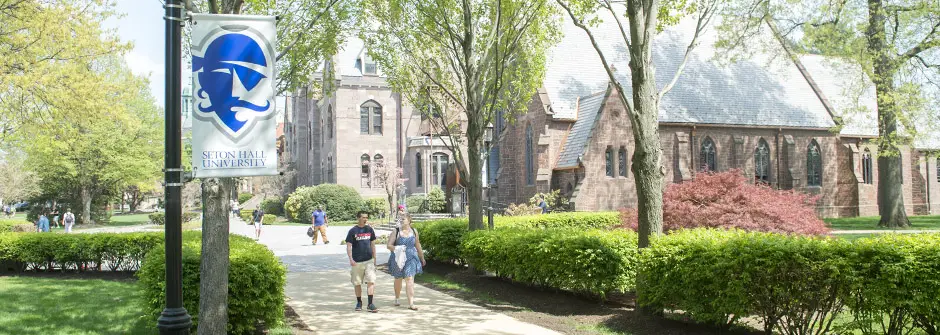
Academic Freedom Beyond the Classroom
Following the Board of Regents' December 2020 endorsement of the University's Strategic Plan, Institutional Statement on Academic Freedom Beyond the Classroom. The statement, as called for in Harvest Our Treasures (Goal 2.7.1), was to be rooted in the University's Catholic identity.
The ad hoc committee began its work in February 2021.
Shared Governance
The committee included professors appointed by the Faculty Senate (in alignment with shared governance), three priests, representatives from every University division as well as students. The group benefitted from the guidance of Thomas Flynn, Ph.D., a former Catholic college president who now serves as Senior Associate for Advising and Consulting with the Association of Catholic Colleges & Universities (ACCU).
Research and Benchmarking
Committee work began with an education and reflection process that included a presentation by Rev. Dennis Holtschneider, C.M., president of the ACCU, followed by in-depth discussion. The committee reviewed guiding documents from the ACCU and benchmarked statements from other institutions, including leading Catholic universities and non-sectarian institutions such as the University of Chicago.
Statement Development
Incorporating guidance and feedback from the full committee throughout the process, a sub-committee drafted the statement’s prologue, principles and guidelines, specifically addressing invited speakers, performing arts and artistic expression, honorary degrees and major University awards, as well as student demonstrations — as the committee was charged to do.
Alignment with Established Policies
The committee was asked to ensure that the Academic Freedom Beyond the Classroom statement aligned closely with established academic freedom policies found in the Seton Hall University Faculty Guides. Those policies remain in place and are not within the purview of this statement, which intends to offer general principles and guidelines for academic freedom outside the classroom.
Community Input and Feedback
The ad hoc committee solicited early feedback and comment from the Deans and Executive Cabinet, the Academic Affairs Committee of the Board, the Executive Committee of the Faculty Senate and the Priest Advisory Council before a draft of the statement was presented to the Board of Regents for review and comment at its annual retreat in September 2021.
An updated draft, which reflected early feedback, was then presented to the University community through two presentations to the community-at-large on October 26, 2021 and a presentation to the Student Government Association on October 25, 2021. The updated draft statement was posted publicly to gather additional community feedback through an online portal.
Statement Approval
The counsel and insights collected from the broader University community during the public review phase were incorporated into a final draft that was presented to and approved by the Board of Regents on December 2, 2021.
The final draft was presented to and approved by the Board of Trustees on January 21, 2022.
Statement Adoption and Usage
Members of the University community should review the Institutional Statement on Academic Freedom Beyond the Classroom and utilize it when planning for invited speakers and performing arts and artistic expression, nominating Honorary Degree and major University award recipients, and when organizing or responding to student demonstrations.
The statement should also be reviewed and serve as a resource when updating related policies and procedures.

